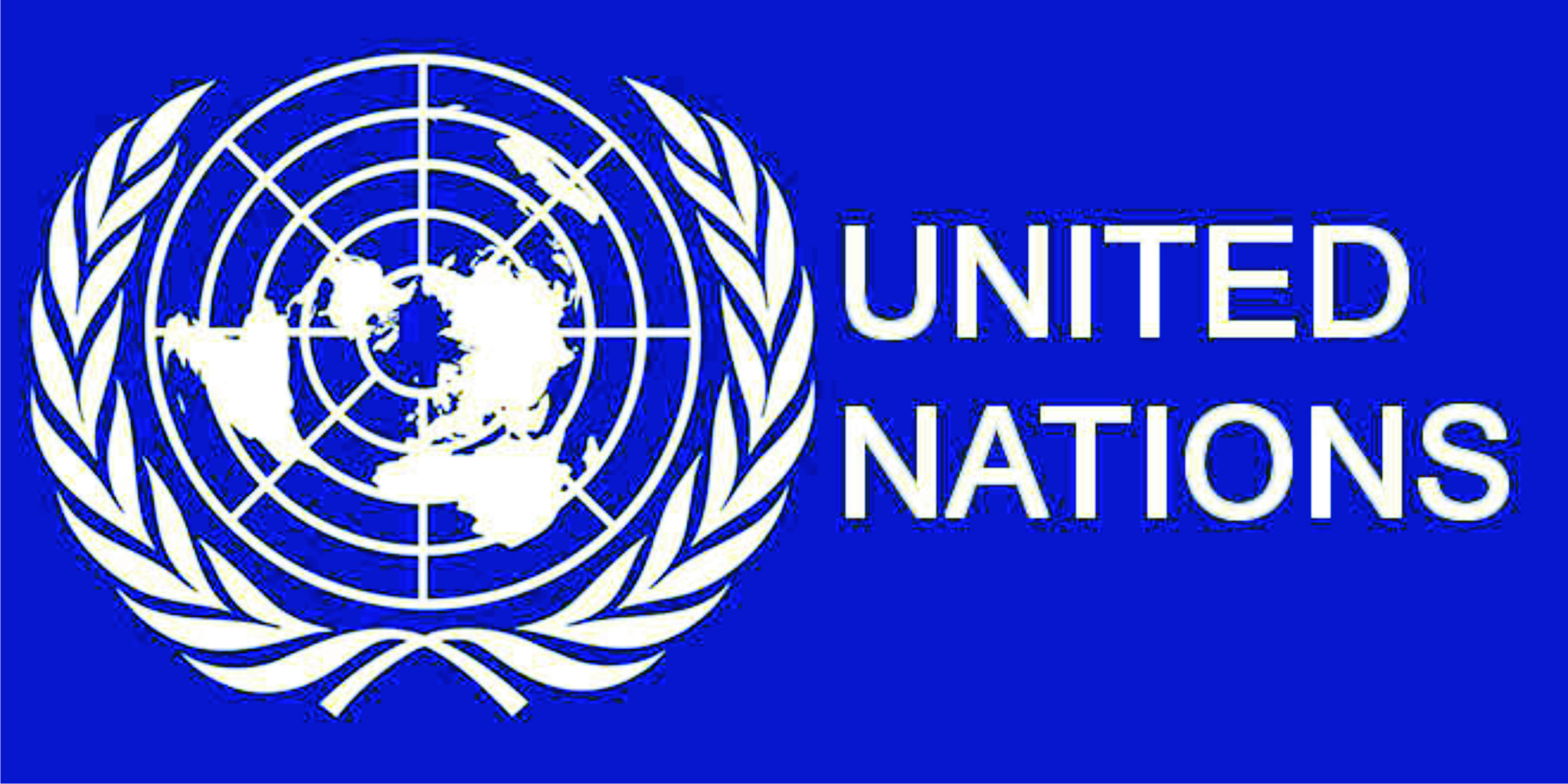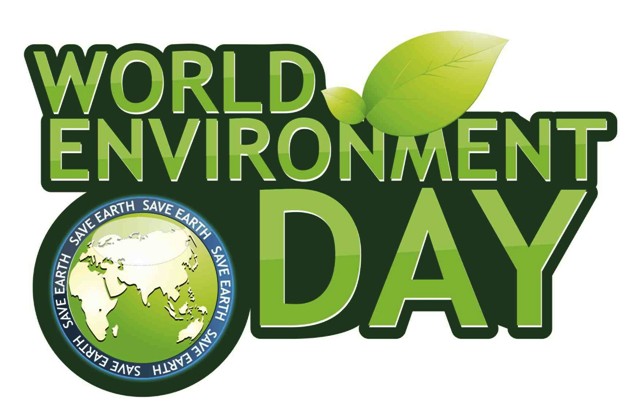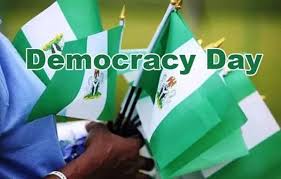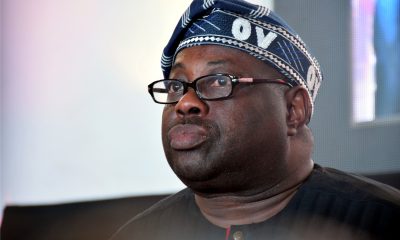Editorial
Reversing Nigeria’s Eroding Human Rights

On Sunday, December 10, a global commemoration marked the 75th anniversary of the seminal Universal Declaration of Human Rights (UDHR). This Declaration, formally adopted by the United Nations General Assembly in Paris three years after the establishment of this universal body, stands as a monument to the promotion and preservation of human rights worldwide.
The UDHR came into existence, contextualised by the chilling aftermath of the Second World War, imbued with a vision to protect human dignity and prevent such atrocities from recurring. The 30 articles enshrining diverse aspects of social, political, economic, and cultural rights constitute the bedrock of human rights jurisprudence and logic.
Against the backdrop of the recently celebrated International Human Rights Day, the world finds itself at a crossroads. We celebrate a global mandate advocating for the respect of fundamental human rights whilst simultaneously confronting the grim reality of rights contravention in several parts of the world.
Particularly, the scrutiny intensifies for Nigeria, where reports of rights violations by both state and non-state actors have dramatically spiked. Despite 24 consecutive years of civil rule, the basic rights of millions of Nigerians remain shockingly elusive.
To better grasp the scale and alarming trend of these issues, it is essential to take a closer look at the everyday realities of Nigerian citizens. Amnesty International stated in their 2019/20 report that the Nigerian government had been found wanting in the respect for the rights to freedom of expression, peaceful assembly and association. Malevolent actions of state authorities and various armed groups exhibit a gross disregard for the sanctity of human life – the most basic human right.
The Nigerian government’s stance towards human rights advocacy can, at best, be described as passive – a term infernally far from the active participation required to actualise change. As argued by some human rights scholars, a government’s duty is not just to avoid violating human rights, but to actively protect and champion them, a role grossly neglected by the Nigerian government. Meanwhile, non-state actors like Boko Haram, Islamic State in West Africa Province (ISWAP), and other armed groups commit acts of violence with disturbing audacity, revealing their blatant disregard for human rights.
However, simply stating the problem or resorting to politically-charged rhetoric does not facilitate practical change. It is instrumental to understand that respect for human rights is fundamentally imperative for a state’s stability and prosperity; it is not just an abstract moral cause. The protection of individual human rights is inextricably linked with national development. It becomes unmistakably evident that nations that uphold human rights tend to be more politically stable, economically prosperous, and display a more significant degree of societal harmony.
Since its independence in 1960, Nigeria has continuously experienced tension, instability, and conflict, invariably leading to multifaceted human rights abuses. These violations, which include the killing of civilians by military airstrikes, rights infringements by the police, and assaults on persons and property by criminals, underscore the pervading dissonance.
In October 2020, the world watched in real-time as peaceful #EndSARS protesters met with live ammunition, further corroborating reports of widespread rights abuses by Nigerian security forces. The assault on persons and property by criminals represents another facet of concern.
Nigeria has a high prevalence of violent crime, from kidnapping to armed robbery, and has grappled with an escalating insurgency for over a decade. The failings of security agencies to curb these crimes reflect a tacit denial of the basic right to security for the Nigerian citizen.
In recent years, there has been an alarming upsurge in extrajudicial practices and killings within the Nigeria Police Force.
According to a report by the Open Society Initiative, these measures have included tactics as severe as illicit killings, sexual assault, and extortion. Notably, these incidents have transpired within over 400 police stations throughout the country. It uncovers the insidious paradox of an institution, charged with the responsibility of preserving civil liberties, being found guilty of breaching them.
While governments are traditionally perceived as the defenders of rights and enforcers of laws, a disconcerting development reveals a different narrative. The instances of frequent disobedience of court orders, unlawful detention, demolition of property without due process, denial of fundamental access to education, and brazen abuse of religious rights present a glaring paradox.
Having examined assorted human rights abuses, it is innocuous to say that citizens’ enjoyment of basic rights in Nigeria is far from ideal. Nigeria’s current position, as ranked by the World Report 2020, confirms that the country’s human rights problem is alarming. Regrettably, Human Rights Watch places the nation at 128th position out of 162 countries.
Reversing this trend will necessitate a profound and robust citizens’ commitment, requiring them to use every democratic tool at their disposal to challenge these flagrant violations and hold their governments accountable. Without this capitulation to those principles on which democracies stand, it can be perilously easy for the state itself to become the predator on the rights it is meant to protect.
The protection of human rights should not be perceived as a luxury but a necessity. Like a seed, once sown and nurtured, it yields benefits for society at large. The Nigerian state apparatus, civil society and international community must pull together in stemming this tide of abhorrent human rights violations. The chronicles of human rights infringements in our country are distressingly long and seemingly entrenched, but it is never too late for a reversal. While the intervention required is comprehensive, the responsibility is collective.
World Human Rights Day must be more than an annual ritual of reflection— it must serve as a wake-up call to the ever-pertinent cries for justice, respect and proper observance of human rights. The Nigerian example serves as a stark reminder to the world about where inadvertence can lead societies. It is nevertheless a clarion call that the respect of human rights should be a universally adopted, diligently pursued cause, without which the peace and prosperity we so aspire become a far and duplicitous dream.
This is why we align with the theme of this year’s Human Rights Day: “Freedom, Equality and Justice for All”. Sadly, this theme remains yet an unfulfilled declaration in Nigeria’s context. Human rights, rather than being upheld, appear under assault, giving a morose picture of the reality amidst a globally acclaimed commitment to fundamental rights. It is high time the Nigerian government and the international community undertook urgent steps to redress these infractions and ensure just conditions for all citizens. This is the only way to reverse Nigeria’s eroding human rights record.
Editorial
Democracy Day: So Far…

Nigeria’s return to democratic rule in 1999 marked a watershed moment in the nation’s political history. After enduring nearly 16 years of successive military dictatorships, Nigerians embraced a new era of civil governance with the inauguration of President Olusegun Obasanjo on May 29, 1999. Since then, the country has sustained a democratic system for 26 years. But, this democratic journey has been a complex mix of progress and persistent challenges.
The formal recognition of June 12 as Democracy Day in 2018 by former President Muhammadu Buhari acknowledged a long-standing injustice. The annulment of the 1993 presidential election, Nigeria’s freest, betrayed the democratic aspirations of millions. That it took decades to honour this date reflects the nation’s complex relationship with its democratic memory.
One of the most momentous successes of Nigeria’s democracy has been the uninterrupted civilian rule over the last two and a half decades. The country has witnessed seven general elections, with power transferring peacefully among different political parties. This is particularly notable considering that prior to 1999, no civilian government had completed a full term without military intervention. The peaceful transitions in 2007, 2015, and 2023 are testaments to Nigeria’s evolving democratic maturity.
Electoral participation, while uneven, has also reflected a level of democratic engagement. In 2003, voter turnout stood at about 69 per cent, but this figure dropped to approximately 34.75 per cent in 2023, according to the Independent National Electoral Commission (INEC). Although the declining turnout raises concerns, it also highlights the increasing expectations of the electorate, who demand credible and transparent elections.
Another area of progress is the growth of a vibrant and free press. Nigerian media has played a crucial role in holding governments accountable and fostering public discourse. Investigative journalism and civil society activism have exposed corruption and human rights abuses. The rise of social media has further expanded the democratic space, enabling young Nigerians to mobilise and advocate for change, as evidenced by the 2020 #EndSARS protests.
Judicial independence has seen mixed results. On one hand, the judiciary has occasionally demonstrated resilience, such as in landmark rulings that overturned fraudulent elections or curtailed executive excesses. On the other hand, allegations of political interference and corruption within the judiciary persist, undermining public confidence in the legal system’s impartiality.
Nigeria’s democracy has also facilitated the decentralisation of power through the federal system. State governments now wield some autonomy, allowing for experimentation in governance and service delivery. While this has led to innovative policies in some states, it has also entrenched patronage networks and uneven development across the federation.
Despite these successes, Nigeria’s democratic journey faces formidable problems. Electoral integrity remains a critical concern. Reports from election observers, including those from the European Union and ECOWAS, frequently highlight issues such as vote-buying, ballot box snatching, and violence. The introduction of the Bimodal Voter Accreditation System (BVAS) and electronic transmission of results in 2023 elections showed promise, but technical glitches and alleged manipulations dampened public trust.
Corruption continues to be a pervasive issue. Nigeria ranks 145th out of 180 countries on Transparency International’s 2023 Corruption Perceptions Index, with a score of 25/100. Democratic institutions meant to check graft—such as anti-corruption agencies and the legislature—often struggle due to political interference and weak enforcement mechanisms.
Security challenges have also strained Nigeria’s democracy. Insurgency in the North East, banditry in the North West, separatist agitations in the South East, and herder-farmer conflicts across the Middle Belt have collectively resulted in thousands of deaths and displacements. According to the Global Terrorism Index 2024, Nigeria ranks as the eighth most impacted country by terrorism. The government’s difficulty in ensuring safety erodes public confidence in the state’s capacity and legitimacy.
The economy poses another critical remonstrance. Nigeria’s Gross Domestic Product (GDP) per capita stands at approximately $2,400 as of 2024, with over 40 per cent of the population living below the national poverty line. High unemployment and inflation have fueled discontent and disillusionment with democratic governance, especially among youth. Without addressing economic grievances, the democratic dividend will remain elusive for many Nigerians.
Ethnic and religious divisions further complicate Nigeria’s democratic consolidation. Politicians often exploit identity politics for electoral gains, exacerbating social tensions. Although federal character principles aim to promote inclusiveness, they have also sometimes fostered a quota mentality rather than merit-based appointments.
Gender representation remains inadequate in Nigeria’s democratic institutions. Women occupy less than 10 per cent of seats in the National Assembly, one of the lowest rates globally. Efforts to pass gender parity bills have faced stiff resistance, highlighting deep-seated cultural and institutional barriers to female political participation.
Civil liberties, while constitutionally guaranteed, are under threat. Crackdowns on protesters, restrictions on press freedom, and surveillance of activists reveal an authoritarian streak within the democratic framework. The controversial Twitter ban in 2021 exemplified the country’s willingness to curb digital freedoms, prompting domestic and international criticism.
The political crisis in Rivers State embodies broader democratic struggles. Attempts to control the state through undemocratic means expose weaknesses in federal institutions and the rule of law. Immediate restoration of democratic governance in Rivers State is vital to preserving Nigeria’s democratic integrity and institutional credibility.
Local governments remain under the control of state governors, depriving citizens of grassroots democracy. Last year’s Supreme Court judgment on local government autonomy is promising, but state-level resistance threatens its implementation. Genuine autonomy would bring governance closer to the people and foster democratic innovation.
As we mark Democracy Day, we must honour the sacrifices of Chief M.K.O. Abiola, Kudirat Abiola, Femi Falana, Chief Gani Fawehinmi, Pa Alfred Rewane, President Bola Tinubu, and countless others, who fought for Nigeria’s freedom. As democracy in Nigeria continues to evolve after 26 years, this day should inspire action toward its renewal. With despotism and state failure as real threats, both citizens and leaders must take responsibility—citizens by demanding more, and leaders by delivering. Excuses are no longer acceptable.
Editorial
Nigeria’s Plastic Pollution Emergency

Yesterday, Nigeria joined the rest of the world to mark 2025 World Environment Day. The occasion serves as a stark reminder that our battle against plastic pollution requires more than symbolic gestures—it demands sustained, coordinated action from all levels of government. As communities worldwide grapple with mounting environmental challenges, Nigeria’s approach to plastic waste management stands at a critical juncture.
Dr. Ibinabo Ogolo, a Research Fellow at the Institute of Geosciences and Environmental Management at Rivers State University, has issued a timely call for comprehensive enlightenment campaigns targeting indiscriminate plastic waste disposal. Her message resonates with the urgency that characterises this year’s global theme: “Beat Plastic Pollution.”
The core challenge lies not in policy formulation but in implementation. Years of environmental initiatives have fallen short primarily due to inadequate public education and awareness campaigns. Citizens cannot be expected to adopt responsible waste disposal practices without understanding the gravity of their actions or knowing the proper alternatives.
Government platforms at federal, state, and local levels possess the infrastructure necessary to reach every corner of our society. Television, radio, social media, community meetings, and educational institutions provide ready channels for sustained messaging. The tools exist; what remains is the political will to deploy them effectively and consistently.
This year’s World Environment Day theme underscores the global recognition of plastic pollution’s devastating impact on ecosystems, wildlife, and human health. The message is clear: plastic waste represents one of the most pressing environmental challenges of our time, requiring immediate and sustained attention from policymakers and citizens alike.
The health implications of plastic pollution extend far beyond environmental aesthetics. Industrial and medical plastic wastes often contain toxic chemicals with carcinogenic properties, posing direct threats to human health. These materials don’t simply disappear when improperly disposed of-they infiltrate our environment, contaminating soil, water sources, and food chains.
Plastic additives released into the environment create a cascade of contamination that affects entire ecosystems. Wildlife suffers through ingestion, entanglement, and habitat destruction, while humans face exposure through contaminated water, food, and air. The interconnected nature of these impacts demands a comprehensive response that addresses both immediate disposal practices and long-term prevention strategies.
The link between plastic pollution and serious health conditions, including breast, ovarian, liver, and lung cancers, as well as various hormonal disorders, underscores the urgency of public education campaigns. Citizens have the right to understand how their daily choices affect not only environmental health but their own well-being and that of their families.
Despite scientific awareness of ocean plastic pollution dating back approximately 50 years, Nigeria’s rivers, creeks, and waterways continue to suffer from plastic waste invasion. This represents a failure of sustained commitment rather than a lack of knowledge about the problem’s existence and solutions.
The ritualistic approach to World Environment Day celebrations must end. Annual speeches and symbolic cleanups, while valuable, cannot substitute for year-round, systematic efforts to change behaviour and protect our environment. Governments must develop comprehensive frameworks that extend beyond June 5th commemorations.
Sustained enlightenment campaigns require dedicated funding, clear messaging, measurable objectives, and regular evaluation. Success depends on consistency, creativity, and community engagement that transforms environmental protection from a government mandate into a shared cultural value.
The path forward demands that all stakeholders-government officials, community leaders, educators, and citizens-recognize their roles in combating plastic pollution. Only through sustained, coordinated efforts can we hope to achieve the behavioural changes necessary to protect our environment and secure a healthier future for generations to come.
Editorial
2025 UTME: Lessons, Concerns

The recent uproar surrounding the poor performance of students in the 2025 Unified Tertiary Matriculation Examination (UTME), alongside growing distrust in the Joint Admissions and Matriculation Board (JAMB), has sparked nationwide concern and regional tensions.
JAMB’s published results reveal a troubling trend: over 75 per cent of candidates scored below 200 out of 400. This marks a continuation of a steady decline in performance since 2020. The Minister of Education, Prof. Tunji Alausa, attributed this decline largely to the shift toward the Computer-Based Test (CBT) format introduced by JAMB.
Yet the crisis extends beyond widespread low scores. A total of 379,997 candidates-primarily from South-East Nigeria and Lagos State-were reportedly affected by technical glitches and human errors. These issues rendered their results invalid. In a rare public admission, JAMB Registrar, Professor Ishaq Oloyede, broke down in tears at a press conference, accepted responsibility, and announced a makeup UTME scheduled from Friday, May 16 to Monday, May 19, 2025.
However, the decision to reschedule the exam on short notice has drawn criticism. Many argue that the affected candidates, already emotionally distressed, were not given sufficient time to prepare. The Board’s plan to inform them via bulk SMS-a method known for its 50-60 per cent delivery rate-was also seen as inadequate, potentially excluding half of those impacted. Critics argue, JAMB should have either extended the resit period or leveraged digital answer scripts for regrading-unless, of course, such retrieval technology is unavailable.
Multiple factors likely contribute to the consistent underperformance of UTME candidates, yet the nation has seemingly accepted this dismal trend as standard. Each year, JAMB meets with university vice-chancellors, and low results are normalised. Consequently, universities scramble to admit the 25 per cent who scored above 200, often lowering their standards to fill quotas. This is especially evident in the profit-driven expansion of private universities.
The 2025 UTME debacle has exposed long-standing systemic flaws. Embracing digital-only exams demands greater readiness-both from service providers and from candidates. Reports from CBT centres include system malfunctions, frozen screens, login errors, and lost answers. Some candidates were unable to navigate subjects or submit their tests. These failures were beyond their control.
Whether due to technical incompetence or deliberate sabotage, the damage is clear. Some speculate that JAMB or its leadership-particularly Prof. Oloyede-may have been targeted. Over the past nine years, Oloyede has returned billions of naira in surpluses to the national treasury, earning both praise and scrutiny. While JAMB is not a revenue-generating agency, this unusual financial transparency has boosted its public image.
Despite this crisis, Prof. Oloyede showed commendable leadership, accepting responsibility, and taking immediate corrective action. The priority now must be to implement lasting solutions that prevent future failures. Leadership must be both principled and responsive to the public outcry.
Beyond the technical breakdowns and poor performance statistics, the UTME crisis had a tragic human cost, with at least one student reportedly taking their own life. Widespread irregularities have undermined trust in Nigeria’s educational meritocracy, reducing years of student effort to nothing.
The use of flawed software systems lacking safeguards has had catastrophic consequences. Essential reforms must include external audits, system redundancies, and real-time monitoring. JAMB’s initial poor communication only deepened public anxiety, underlining the need for greater transparency and independent oversight.
What is required now is a complete overhaul of JAMB’s technical infrastructure and a new communication strategy grounded in empathy and student welfare. Broader systemic reforms must follow, including more inclusive admission criteria and better support structures for students.
This crisis presents an opportunity-a solemn one-for sweeping reforms that centre students’ needs. Transformative action must be taken, not just in response to this scandal, but in honour of the life lost and to restore public trust.
Finally, an urgent and impartial investigation must uncover the true causes of these failures. Those found culpable must be held accountable. If we move forward without consequences, both JAMB’s reputation and that of its leadership may suffer irreparable damage.
-
Politics5 days ago
Democracy Day: Monarch Calls For Unity, Vigilance
-

 News5 days ago
News5 days agoJune 12: Stakeholders Rate Nigeria’s Democracy Low
-
Business5 days ago
Ogbe Gets Appo Board Appointment
-

 News5 days ago
News5 days agoLearn How To Form Coalition Party From Tinubu, Sowunmi Tells Atiku
-
Niger Delta5 days ago
School Wins Maiden C’ River Interschool Academic Challenge
-

 Editorial5 days ago
Editorial5 days agoDemocracy Day: So Far…
-

 Sports5 days ago
Sports5 days agoConcacaf Opposes 64-Team W’Cup Plans
-

 Politics5 days ago
Politics5 days agoDisunited PDP Can’t Wrest Power From APC In 2027 – Momodu

